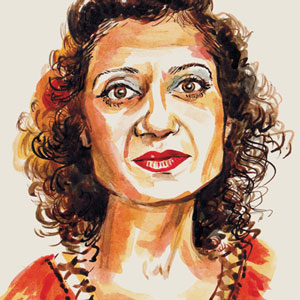Some Covid-19 victims are more equal than others

The Covid-19 quarantine has brought out all the narcissistic celebrity virtue signallers, with Madonna tweeting from a luxury bathtub full of rose petals, about how this virus is ‘the great equaliser’.
I’m sorry, Madonna, but you are wrong.
This pandemic is highlighting and amplifying inequalities like nothing else before it.
This crisis, which has already affected my own family, has placed everything into sharp perspective for me. On a personal level, I am no longer interested in whether people share my world view. Professionally, I am done with the incessant bean-counting our role has become. I wish only to follow a purpose that aligns to my values; that of actually making a difference to patients’ lives.
But my patients are mainly black and Asian – the ones most likely to be impacted by this virus. A report on 10 April by the Intensive Care National Audit and Research Centre confirmed that black and minority ethnic (BAME) patients make up 35% of deaths even though they represent only 14% of the population.
At the time of writing, 11 NHS doctors have died from this virus – all male, middle aged and from a BAME background. No doubt the number of NHS staff deaths will be even higher once this column is published.
We are not equal and to pretend otherwise is highly disingenuous
Following the sad news of a Covid-19-related death in my own family, I am left reflecting on why this virus is even more lethal for certain populations and what we can do proactively to manage this.
Much has been written about the myocardial injury associated with Covid-19 infection, which could unmask undiagnosed coronary artery disease. The typical metabolic syndrome phenotype is much more prevalent in the South Asian community, which could represent a significant risk factor for the infection.
But we can’t dismiss the significant social and psychological factors of poverty, deprivation and culture. Doctors aside, people from minority backgrounds are more likely to be living with extended families in overcrowded housing. Language issues and deprivation may result in them struggling to access healthcare, which is even more challenging since our practice doors closed. Children from less affluent backgrounds will not experience the same privileges as my children during lockdown; country walks and all the books money can throw at them.
We are not equal and to pretend otherwise is highly disingenuous. Certain populations need additional resource but years of underfunding for multicultural, deprived communities is now coming home to roost.
My big job on Easter Monday was to validate the list of shielded patients, which arrived more than two weeks late. But nowhere in this list does it ask me to proactively shield middle-aged BAME men with comorbidities – who are at significant risk of dying from this condition.
I am left wondering what this façade is all about.
Dr Shaba Nabi is a GP trainer in Bristol. Read more of Dr Nabi’s blogs online at pulsetoday.co.uk/nabi
Pulse July survey
Take our July 2025 survey to potentially win £1.000 worth of tokens













